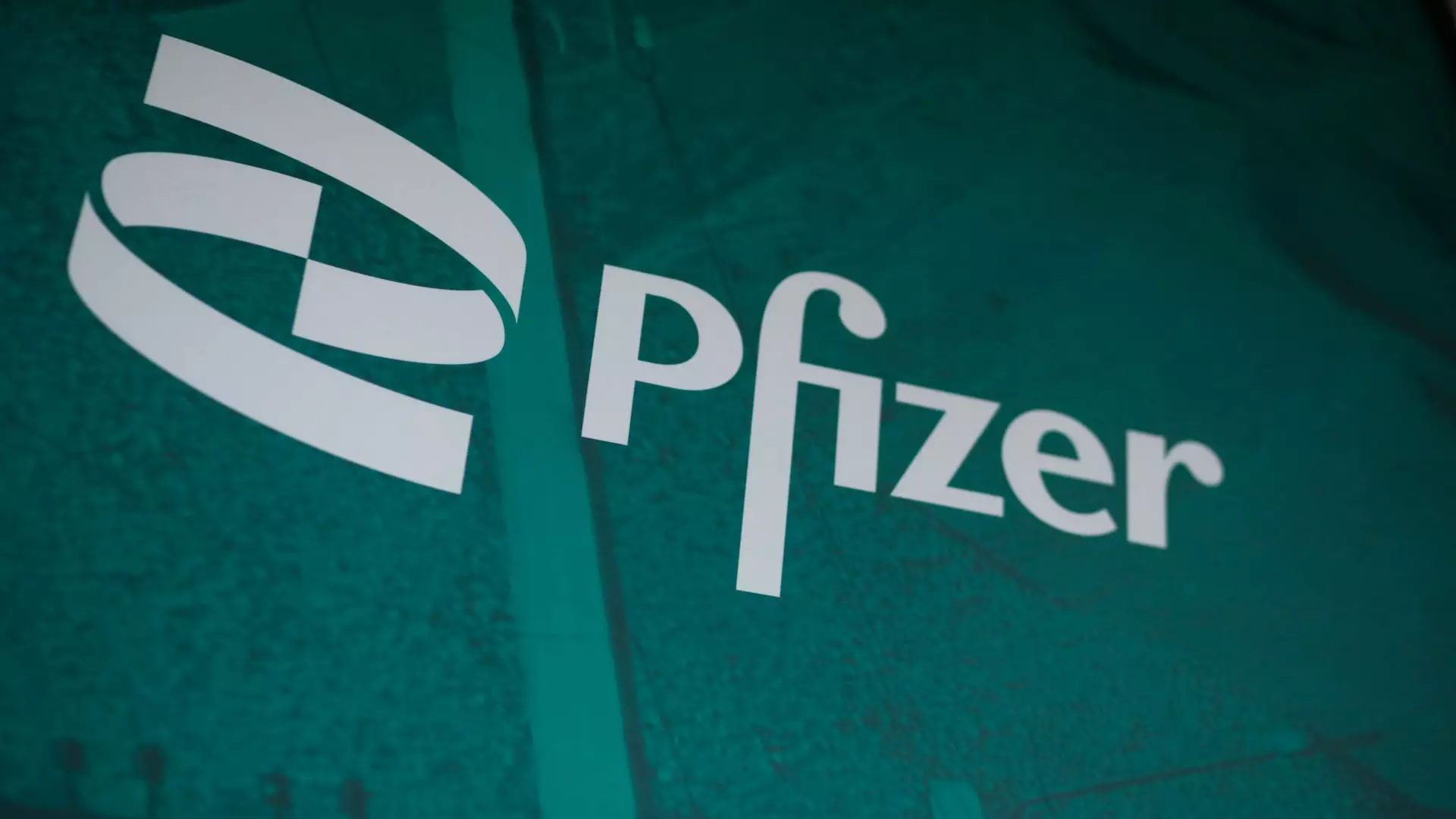Cancer cachexia is a debilitating syndrome frequently encountered in cancer patients, characterized by a significant loss of body weight, muscle mass, and diminished quality of life. Affecting an estimated 9 million individuals globally, the condition is particularly alarming as it is prevalent in about 80% of cancer patients. Tragically, most of these patients are expected to succumb within a year of their diagnosis. This phenomenon not only exacerbates the overall health of patients but also poses significant challenges to their treatment outcomes. As patients struggle with reduced appetite and energy levels, they further compromise their ability to undergo effective cancer treatments, underscoring an urgent need for therapeutic interventions.
In a development that could significantly alter the treatment landscape for cancer cachexia, Pfizer announced positive findings from a midstage clinical trial of their investigational drug, ponsegromab. This monoclonal antibody targets growth differentiation factor 15 (GDF-15), a protein implicated in regulating appetite and metabolism in the context of cancer treatment. The results of this phase two trial suggest that ponsegromab not only enhances body weight but also improves muscle mass and overall physical function in affected patients. This culminates in a broader promise of elevating the quality of life for individuals grappling with this life-threatening condition.
The study engaged 187 patients suffering from non-small cell lung cancer, pancreatic cancer, or colorectal cancer, all experiencing elevated levels of GDF-15. By administering varying dosages of ponsegromab, researchers could observe a remarkable correlation between the drug and body weight gain. Notably, those receiving the highest dosage experienced an average weight increase of 5.6%, which aligns with expert definitions of clinically significant weight gain in cachexia cases.
Mechanisms of Action and Clinical Implications
At the heart of ponsegromab’s action lies its ability to modulate levels of GDF-15. Under typical circumstances, healthy individuals maintain low GDF-15 levels. However, in chronic conditions such as cancer, these levels can escalate, consequently impairing appetite and promoting cachexia. By administering ponsegromab, Pfizer hopes to reverse this trend, thereby fostering improved appetite and enabling patients to regain both weight and strength.
Clinical data revealed that not only did subjects gain weight, but they also reported enhanced physical activity and overall wellness. This multifaceted improvement is essential, as it could empower patients not only to tolerate ongoing treatment but also actively engage in their recovery process.
Safety Profile: Encouraging Assessments
Pfizer’s updated data also highlighted an encouraging safety profile for ponsegromab, with minimal treatment-related side effects observed among participants. Reports indicated a lower incidence of adverse effects in the ponsegromab group compared to the placebo group, which suggests that the drug’s therapeutic advantages may be achieved without compromising patient safety. Charlotte Allerton, head of discovery and early development at Pfizer, expressed optimism about the drug’s potential to meet an unmet clinical need and enhance the overall treatment regimen for cancer patients.
As discussions with regulatory bodies are underway regarding the late-stage development of ponsegromab, Pfizer is poised to initiate further studies potentially starting in 2025. The goal is to secure approvals that could diversify the therapeutic applications of ponsegromab, extending beyond cachexia associated with cancer. Notably, Pfizer is also exploring the efficacy of this monoclonal antibody in other patient populations, including those suffering from heart failure, who often present similar cachexia-related challenges.
While the road ahead remains exigent, the positive outcomes from the midstage trials serve as a promising harbinger for both Pfizer and the millions of patients languishing under the shadow of cancer cachexia. The potential for ponsegromab to become the first U.S. FDA-approved treatment targeting this complex and severe syndrome establishes a new frontier in oncological care, offering a glimmer of hope for improved patient management and outcomes.
The results from Pfizer’s trials signify a monumental stride toward enhancing the quality of care for cancer patients battling cachexia. As further studies unfold, the medical community remains hopeful that new treatment paradigms will emerge, revolutionizing the way we approach cancer cachexia.


Leave a Reply